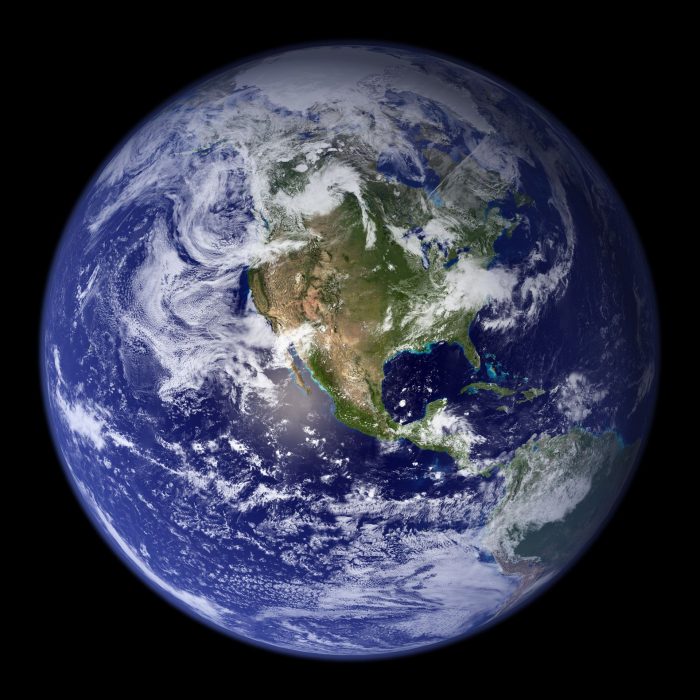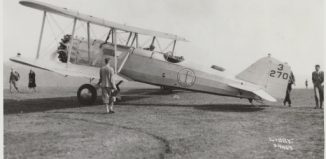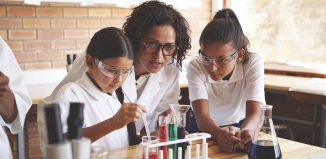Nature Matters: A Planetary Birthday Wish
By John L. Turner
August is my birthday month and as I sat staring at the computer screen deliberating the topic for this month’s “Nature Matters” column, the realization occurred to me that I will be celebrating (or at least recognizing) two-thirds of a century of existence. Yes, my 67th trip around the sun on this blessed, pearl blue planet, the only place we know in the entire physical universe where this most unique and fascinating thing called life exists.
So, while I graciously accept your projected birthday greetings, I’m going to devote this column to laying out birthday wishes for Planet Earth, wishes that I humbly request you consider acting upon.
Here’s my eclectic list of wishes for our planetary home and all of its inhabitants:
‘Don’t Bag It’
One of the downsides of our love for the grass lawn is, well, the grass, or more specifically, the cut grass. Common practice for many homeowners is to bag grass clippings, placing the bags at the curb for their municipality to deal with, as though the clippings were a waste product to be gotten rid of. We now know the opposite is true — clippings are an asset which should be left on the lawn to rapidly decompose (or if you object to the clippings being left on the lawn then spread out in your compost pile). Doing so returns moisture and nutrients to the lawn and can reduce your water and fertilizing needs (saving money!). These clippings do not add to the creation of thatch, a common misperception. Plus, grass clippings brought to the dump can result in methane generation, a bad thing since methane is a potent greenhouse gas. Clippings are bad for both the planet and your pocketbook!
Recycle aluminum
Manufacturing aluminum from bauxite ore to turn into cans and foil has enormous environmental impacts. It creates significant air pollution, requires lots of energy, and consumes large amounts of water. It is one of the top ten industries driving climate change. In contrast, making cans and foil from recycled aluminum uses about 5% of the energy needed to make these products from scratch. The good news is aluminum is endlessly recyclable and about two-thirds of consumed aluminum is recycled each year so the more we increase that percentage the less we impact the planet from the effects of bauxite ore mining and aluminum manufacture derived therefrom.
An easy way to promote aluminum recycling is to pick up discarded cans like those you undoubtedly see in parking lots and along roadsides. I see them too and I collect them, putting them in a small plastic bag I keep in the car until I dump them in a much larger bag lining a garbage can. I bring the bags filled with foil and cans to a local waste or scrap metal company (PK Metals on Route 112 in Coram is currently paying 40 cents a pound) and then donate the money to the Four Harbors Audubon Society, creating a true triple win situation — more aluminum recycled, less roadside litter, and funds for conservation. Will you join me in this effort?
Protect birds
Many bird species are in trouble. A recent study has documented a 30% decline — or about 3 billion less birds in North America today than 50 years ago. There are many causes including habitat destruction, feral and pet cats, window strikes, oil spills, drowning due to at-sea fishing activities, ingestion of lead shot and fishing sinkers, and pesticide poisoning, to name but a few. But these problems present opportunities and there’s much we each can do to protect birds by directly responding to these threats — putting window stickers on problem windows so birds can see them, avoiding a fatal collision, keeping your pet cat indoors or if you can’t, make your next pet cat an indoor animal, not using lead split shot and recycling fishing line, drinking shade grown coffee, and throwing away the pesticide can. Birds very much need our help, and let’s remember we are their only hope, so let’s help them!
Be kind to other living things
All life shares a common ancestry that began several billion years ago, when the first signs of life emerged. This is a fact which we can, perhaps uniquely, understand, fostering an opportunity for a kinder, gentler relationship with all living things. So please be kind to them — move turtles out of the road, while driving slow down for squirrels and other wildlife, and practice accommodation by placing outside, unharmed, house-inhabiting spiders, mice, and snakes.
To bolster this view of valuing life’s sanctity, remember a thought your parents probably shared with you when it came to empathy for the predicament of others — “putting yourself in the shoes of another.” Imagine, for a moment, being that box turtle or squirrel trying to get across a road. Wouldn’t you love it for the human driver bearing down on you to take their shoe-clad foot off the gas pedal for a moment or maybe safely pulling to the side of the road, stopping, and moving you out of harm’s way?
Connect to nature by connecting to a local park
Walk slowly through a park or preserve, practicing the Japanese art of “Shinrin-yoku” or forest bathing. It is shown to lower blood pressure and levels of cortisol, a stress hormone. Leave human distraction behind; listen for a variety of bird songs and calls and the deep croaks of frogs, the lapping waves or running water; breathe in the rich scents of the forest or the salty air of the seashore; and quietly observe all the surrounding life, breathing deeply and intently while you do so.
Connect to the vibrancy that is around you — the green fuse of plant life, the orderly activities of ants around an ant mound, the many patterns of tree bark, the cloud formations you take for granted, and the patrols of darting dragonflies. Maybe you’ll even see the blur of an actively feeding ruby-throated hummingbird seeking nectar from jewelweed.
Baba Dioum, a Senegalese forester, said in a speech at the United Nations half-a-century ago: “In the end, we will conserve only what we love, we will love only what we understand, and we will understand only what we are taught.” Go forth, being taught by nature, and fall in love, perhaps for the first time or maybe for the 487th time with her beauty, complexity, and magic.
If these things are done you will have taken measurable steps toward improving your relationship with planet Earth and its treasured forms of life that share the only place in the universe so blessed. What a great birthday present that would be, enough to make me skip the birthday cake.
A resident of Setauket, John Turner is conservation chair of the Four Harbors Audubon Society, author of “Exploring the Other Island: A Seasonal Nature Guide to Long Island” and president of Alula Birding & Natural History Tours.







